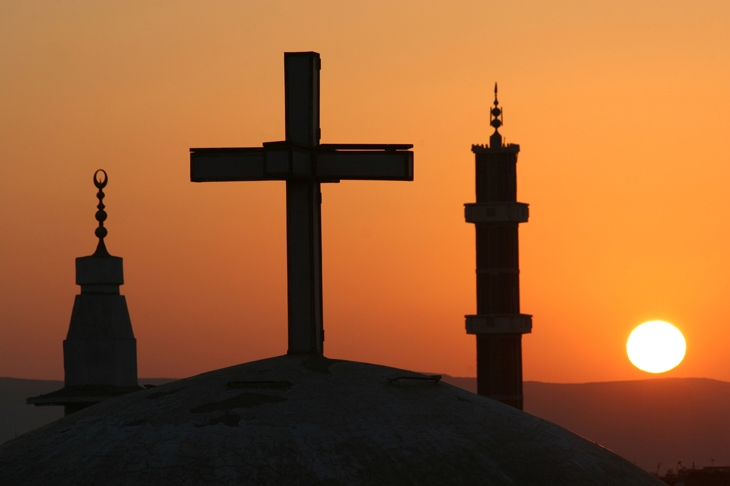It might seem unlikely that a Christian noblewoman could have had influence over a Muslim city in the 13th century, when women were considered by Muslim society as being ‘underlings without complete intelligence’ and by Christian society as ‘a fish hook of the devil… a source of evil… a treasury of filth’. However, Tamta — a woman of Armenian Christian heritage, who travelled extensively and acted as a link between people of various faiths and backgrounds — seems to have governed, influenced taxation, provided passage for pilgrimage and even, possibly, played a role in battles and military negotiations, in Akhlat, a Muslim city in what is now Turkey, in the early 1200s. Antony Eastmond, professor of art history at the Courtauld Institute, asks how this came to be.
References to Tamta are few in chronicles from the Middle Ages. Eastmond studies the society Tamta was born into, the context of her marriages, the idiosyncrasies of societies and cultures she moved through, and the perceptions of Christianity, of women, and of various races in the 13th century, in an attempt to tease out the shape that Tamta’s life and identity likely took.
Tamta passed through the hands of various elite men during her lifetime. She was, like many women in the 13th century, a ‘commodity’ for her male relatives ‘to dispose of however they saw fit to further their own ends’. First, she was a bargaining chip in the negotiations for her father’s ransom after he was captured outside the walls of Akhlat in 1210. She was married to
Ayyubid al-Awhad, then passed onto his brother, al-Ashraf, following al-Awhad’s death.
She was subsequently captured by Khwarazmshah invaders, raped by their leader Jalal al-Din, then illegally married to him, returned to al-Ashraf at the conquering of the Khwarazmshahs by the Ayyubids, captured by invading Mongols, sent by Batu (grandson of Gengis Khan) to the court of the Great Khan, Ogodei, and then, finally, returned to Akhlat to be its sole ruler, under the Mongols.
While in most academic texts we are made to read between the lines in regards to the treatment of women, Eastmond is straightforward and honest. He sensitively investigates the impact of Jalal al-Din’s rape of Tamta and highlights the trauma the episode would have left her with. He also studies the lives of other elite women to better understand Tamta’s life with her other husbands. In his analysis of palace murals from the time, he demonstrates the ‘invisibility of women’ in the court and the persistence of ‘male fantasies and male interests’. Eastmond also identifies disparities between the belief that women were incapable of leadership, and reality, in which women governed cities frequently. Wives and widows who governed cities on behalf of their husbands provide context for Tamta’s own governance.
Akhlat — the city where Tamta first lost her freedom, and then, decades later, regained it when she returned as ruler —takes a central place in this book. Eastmond argues that Akhlat’s development parallels Tamta’s, and compares the diversity of Akhlat, which bordered Arab, Christian and Asian regions, to Tamta’s links with, and marriage into various disparate cultures. Discussion of the buildings, cemeteries and city walls of Akhlat allude to why Tamta was allowed to keep her faith while married to a Muslim. Eastmond reveals a society of tolerance. We see bilingual inscriptions on walls, Muslim and Christian cemeteries next to each other; and churches and mosques, in territory of opposing religions, preserved and operational. Eastmond describes a Byzantine church in the Seljuk citadel of Alanya that was ‘carefully maintained as a chapel even as Kaykubad built a new palace around it’. Similarly, Christian wives of Muslim elites, like Tamta, were allowed to keep their faith, even when their sons became sultans; Eastmond suspects that this decision was usually tactical, so that Christian subjects could be governed easily by them.
Tamta’s transformation from bargaining chip to ruler is fascinating. While often forced to speculate, for lack of primary sources, Eastmond’s portrait is incredibly well-informed, considered and rich. Through his excavation of Tamta’s life, identity and influence, we are rewarded with a detailed portrait of society, culture and religion in the Middle Ages too. Eastmond transforms an incredibly niche topic — the life of a woman he describes, himself, as being ‘a footnote in history’ — into something vast that crosses an array of cultures, religions and peoples.






Comments